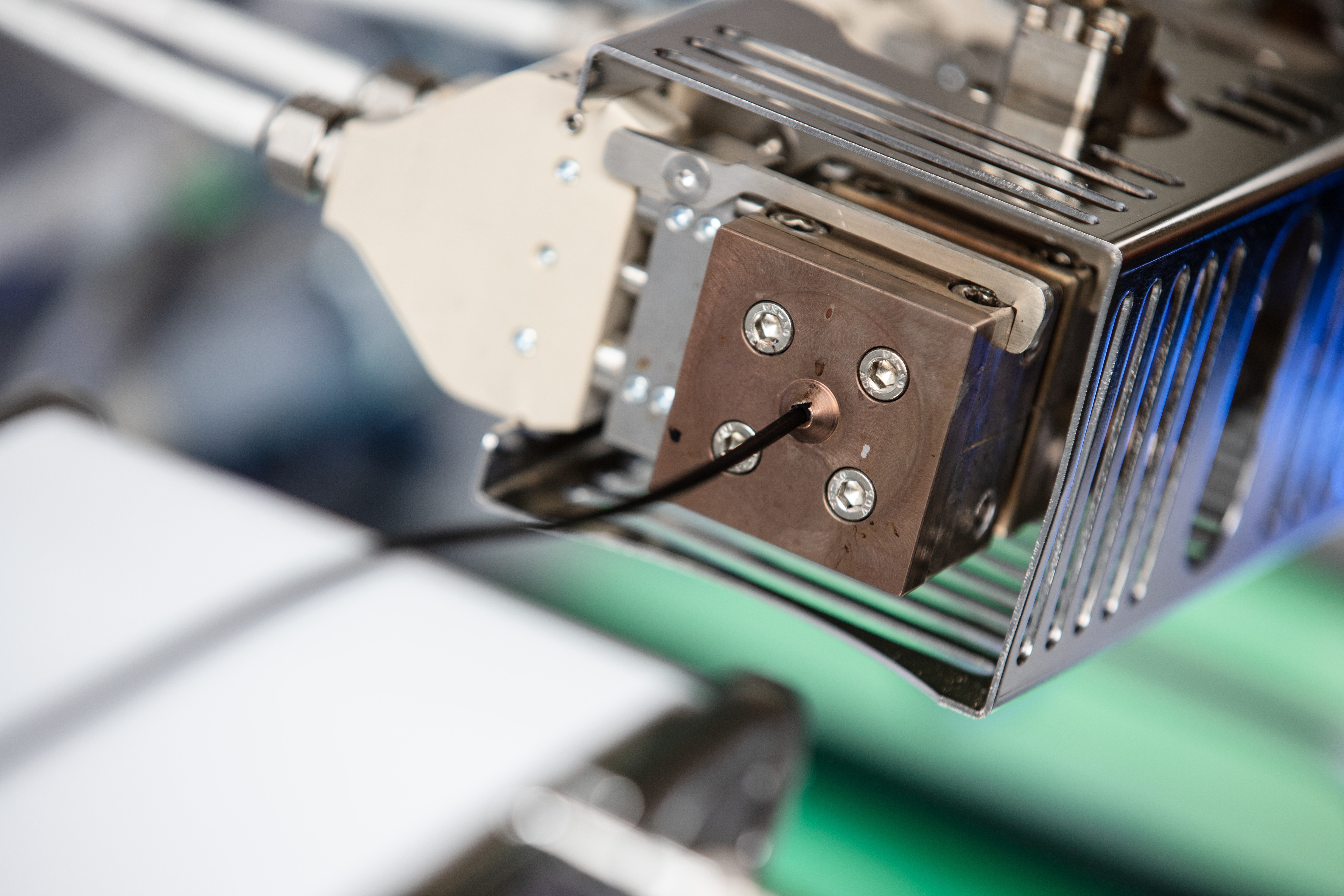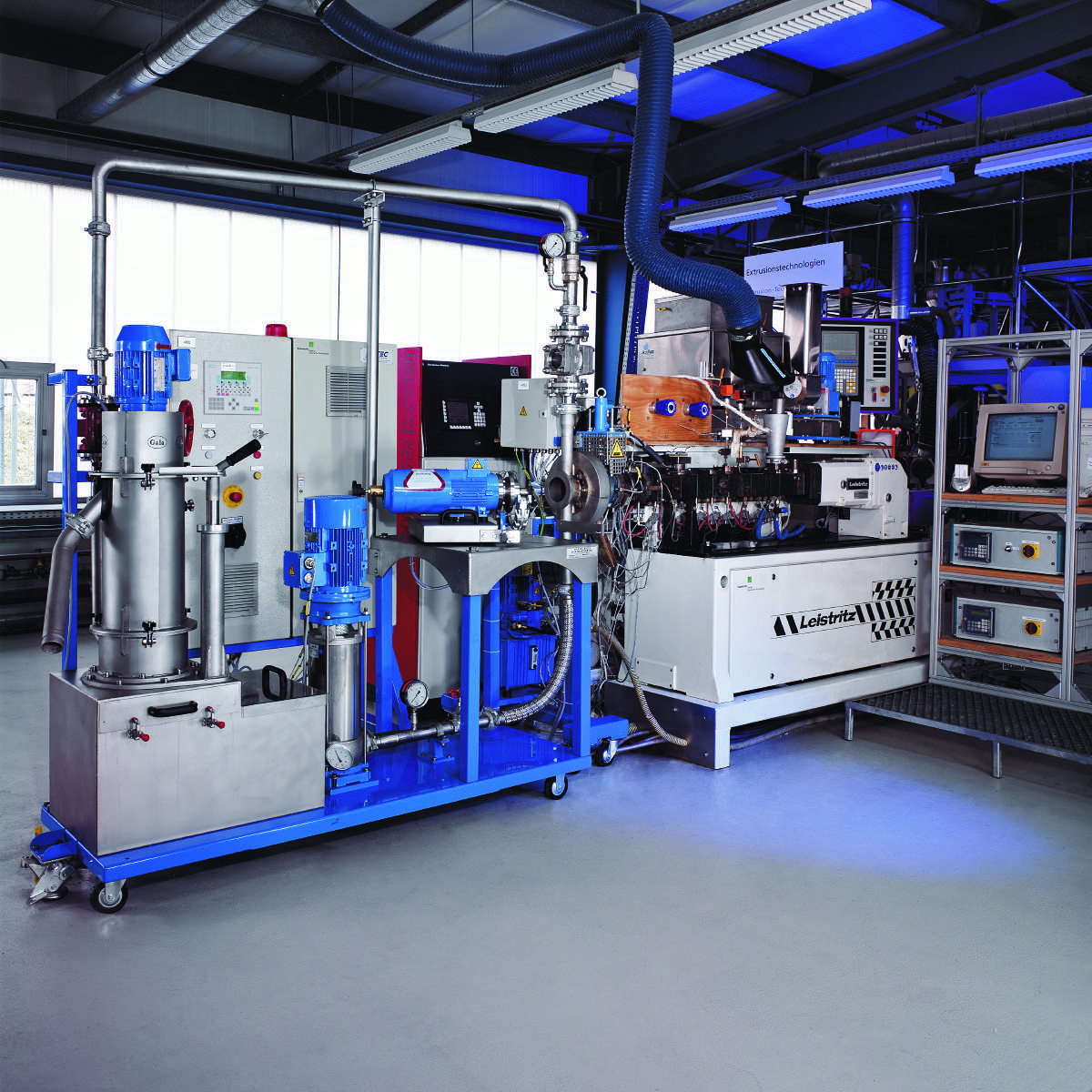In the Fraunhofer-internal project HyTwin, the ITWM team around Dr. Alex Sarishvili is developing a hybrid digital twin together with researchers from the Fraunhofer Institute for Chemical Technology ICT. Using Machine Learning (ML) methods, this twin supports companies in the optimization and control of their plastics processing, more precisely their extrusion processes.
Extruder, additives, twin screw, nozzle – these are all technical terms from the world of plastics processing, although there are of course many complex variants of production. However, the extrusion process is common to all of them. Here, plastic is pressed as a tough mass under high pressure and high temperature through a shaping opening. At the end, the company receives as a product, for example, thermal insulation panels or plastic granulate for further processing into PET bottles or plastic pipes. »Extrusion is a highly complex physical-chemical process in which hundreds of parameters play a role and which is accordingly difficult to model and optimize,« explains Sarishvili. Almost all plastics processed into a product pass through such a step in the process chain.
In the plastics industry, optimizing this still often means using »Trial and Error« to test how the quality of a product can be improved and optimized by varying individual parameters. Necessary material parameters are determined and tested anew for each material mixture of the real process. This is time-consuming and cost-intensive.

